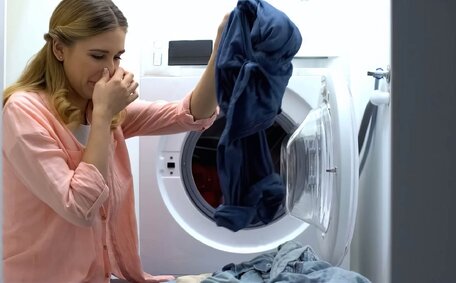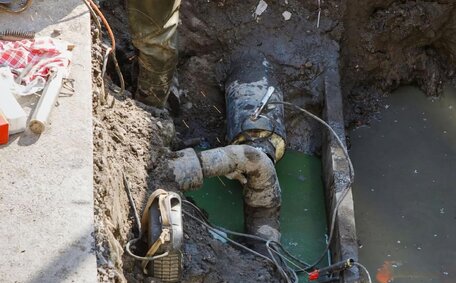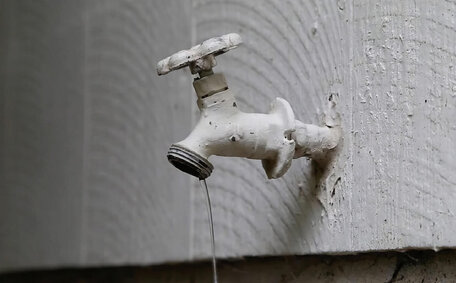Recognizing a Plumbing Emergency
Some of the most common plumbing emergencies that require immediate attention include burst pipes, gas leaks, and blocked toilets or drains. These plumbing situations could cause flooding, pose health hazards, and result in water damage to your home and property if not addressed swiftly.
Signs of a Burst Pipe
Burst pipes often start as small plumbing leaks but can quickly escalate. Warning signs include:
- Unusually high water bills
- New stains on walls or ceilings
- Low water pressure
- Visible water pooling around pipes
If you find yourself spotting water actually spraying from a pipe, this signals a full burst that demands immediate repair.
Gas Leak Indicators
Gas leaks present serious hazards and require immediate action. Be vigilant for signs such as:
- A strong rotten egg odour coming from the gas appliance or pipe
- Hissing, whistling, or roaring sounds
- Dead plants or grass in one particular area
- Flames coming from the ground or appearing blue or orange around a gas appliance
- Dizziness, nausea, or breathing difficulty around gas appliances
Blocked Sewer Signs
Sewage backup issues are concerning because they can cause water contamination and warrant emergency attention. Indications of a clog in your water line include:
- Water pooling around drains or toilets
- Gurgling sounds from pipes
- Foul sewage odours in the home
- Toilets that are slow to flush or start overflowing
- Sinks that drain slowly or not at all
Immediate intervention is necessary to clear obstructions and prevent sewage backup, which could compromise sanitation, damage property, and pose health risks.
Taking Immediate Action to Stop Further Damage
In a plumbing emergency, promptly shutting off water is critical to prevent the issue from worsening. The immediate step is to turn off any affected utilities:
Shutting Off the Water
If you have a burst pipe or leak, immediately turn off your water heater and the main water supply using the main water valve to your home (often near the front hose bib or water metre). Use a large wrench to turn the shutoff valve clockwise until it closes, halting water flow from taps. This will prevent further damage and minimise flooding.
Turning Off the Gas
If a gas leak is detected, your primary action, after ensuring safety, is to evacuate and then turn off the gas supply if possible. If you smell gas, immediately call emergency services and, only when safe, shut off the gas supply using the main valve near the gas meter.
Use a wrench to carefully switch off the valve by turning it a quarter-turn until it’s perpendicular to the pipe, stopping the flow of gas.
Clearing Clogs
For a blocked toilet or drain, avoid repeated flushing which can worsen water flow issues and seek a plumber’s assistance. Instead, use towels on the floor to soak up spills and avoid actions that could damage your home until a plumber can address the plumbing blockages.
It’s essential to limit damage by quickly implementing measures to protect your home and arranging professional repair services to mitigate contamination and harm during any plumbing emergency.
Ensuring Access to Safe Water
In a plumbing emergency, immediately turning off the main water supply is essential. Ensure you have access to safe drinking water by having bottled water available for hydration, cooking, brushing teeth, and other needs.
Before turning off the water, fill bathtubs, sinks, and containers with tap water for non-drinking purposes like flushing the toilet or cleaning, ensuring you have enough water until services are restored.
Allocate the largest suitable container for drinking water to maintain essential water access when the supply is shut off for repairs. Continue filling this with bottled water from stores. Proper storage is essential; ensure water containers are sealed and stored away from direct sunlight or warmth to inhibit algae growth.
In the event of flood damage, refrain from using tap water until authorities confirm it’s safe due to potential contamination. Rely on pre-stored or bottled water until the clearance is given.
It’s crucial for everyone, especially vulnerable groups like children, the elderly, pets, and those dependent on medical equipment, to stay hydrated and understand the steps to take after cutting off main water supplies. Keep a sufficient supply of bottled water on hand to meet your hydration requirements during any plumbing service interruptions.
Implementing Temporary Fixes While Waiting for Professional Help
Stemming Leaks
Pending a professional plumber’s arrival, take steps to manage leaks by using a plumbing kit and leak-sealing tape on minor pipe damages. For larger leaks, especially near gas sources, shut off nearby water and position buckets underneath to catch drips and minimise damage.
Clearing Simple Clogs
First, try to unclog drains with a plunger or plumber’s snake. Place rags around overflowing drains to absorb water. However, avoid the use of chemical cleaners or actions that strain pipes excessively.
Calling in the Experts
It’s imperative to contact a qualified emergency plumber for prompt service. Choose a professional that provides 24/7 emergency assistance with minimal wait times, and request an estimate to be aware of potential costs. For intricate problems, it’s wise to seek professional assistance instead of applying temporary fixes.
Act proactively while awaiting services to manage plumbing issues before they worsen.
Contacting a Professional Plumber for Assistance
During a plumbing emergency, the experienced Quakers Hill Plumbing team is available to provide safe and effective repairs. With over 10 years of handling plumbing emergencies in the Quakers Hill area, we offer round-the-clock assistance.
The Value of Professional Diagnosis and Repair
Trying to tackle plumbing emergencies without a professional can exacerbate the problem, causing further injury or damage. Our expert plumbers possess the right tools and knowledge, enabling them to diagnose problems accurately and enact swift, effective solutions.
Reasons to Call Our Emergency Plumbers
- Available 24/7 for urgent plumbing situations
- Fast response times to minimise damage
- Licenced, bonded, and insured for your safety
- Trusted repairs during plumbing crises, with a focus on swift resolution
- Upfront estimates so you aren’t surprised by the cost
In the event of a plumbing crisis, immediately contact our emergency hotline at 1300 349 338. Our professional plumbers are known for reliable and high-quality work, ensuring your plumbing problems are swiftly resolved.
Preparing for Repairs and Restoration
Once you have secured a professional plumber to address your emergency, take proactive steps to prepare for their arrival and any necessary repairs or restoration.
Clear Access to the Affected Areas
Carefully clear debris, furniture, and other obstacles from around burst pipes, near gas lines, clogged drains, or any problem areas needing repair. This allows plumbers efficient access to inspect and swiftly commence repairs, such as clearing a clogged drain or turning off main supply lines if necessary.
Protect Belongings from Potential Damage
Move electronics, valuables, and fragile items away from the affected area during a plumbing issue where water leaks or accidents could occur. Lay down towels or tarps and set up buckets to catch potential drips.
Document the extent of the damage with photos for potential insurance claims.
Discuss Repair Cost Estimates
Ensure you know how costs are estimated by obtaining a written repair estimate from your plumber that outlines expected costs for parts, labour and restoration efforts needed. This helps make sure there are no surprise expenses. Provide approval to proceed with outlined work.
Check if repairs may be covered by homeowner’s insurance depending on your policy. File claims for reimbursement per insurer protocols.
With proper preparation and clear communication, professional plumbers can swiftly and efficiently address plumbing issues, restoring functionality.
Preventing Future Plumbing Emergencies
While prompt action is critical during a plumbing emergency, prevention is key to circumventing issues before they occur. Through proactive maintenance and understanding your plumbing system, you can prevent many emergencies, saving time, money, and mitigating property damage in the long term.
Conduct Regular Maintenance
Schedule yearly inspections of your home’s plumbing fixtures, pipes, and hot water system to identify and rectify potential problems promptly.
Watch for Warning Signs
Stay alert to early warning signs like moisture around pipes, diminished water pressure, unusual sounds, and sewer odours, which can indicate potential plumbing problems.
Upgrade Old Plumbing Systems
Upgrade outdated plumbing components like drain lines, sewer pipes, water heaters, and fixtures to diminish the risk of emergencies and benefit from the latest safety features in new models.
Practise Water Conservation
To prevent overburdening your plumbing, reduce water strain by installing aerators, repairing leaks promptly, and avoiding flushing trash down the toilet. Conservation efforts help protect against undue wear and tear.
Proactive measures enable early intervention, preventing minor plumbing issues from becoming major emergencies. Enlist a professional like Quakers Hill Plumbing to assess the state of your plumbing system.






